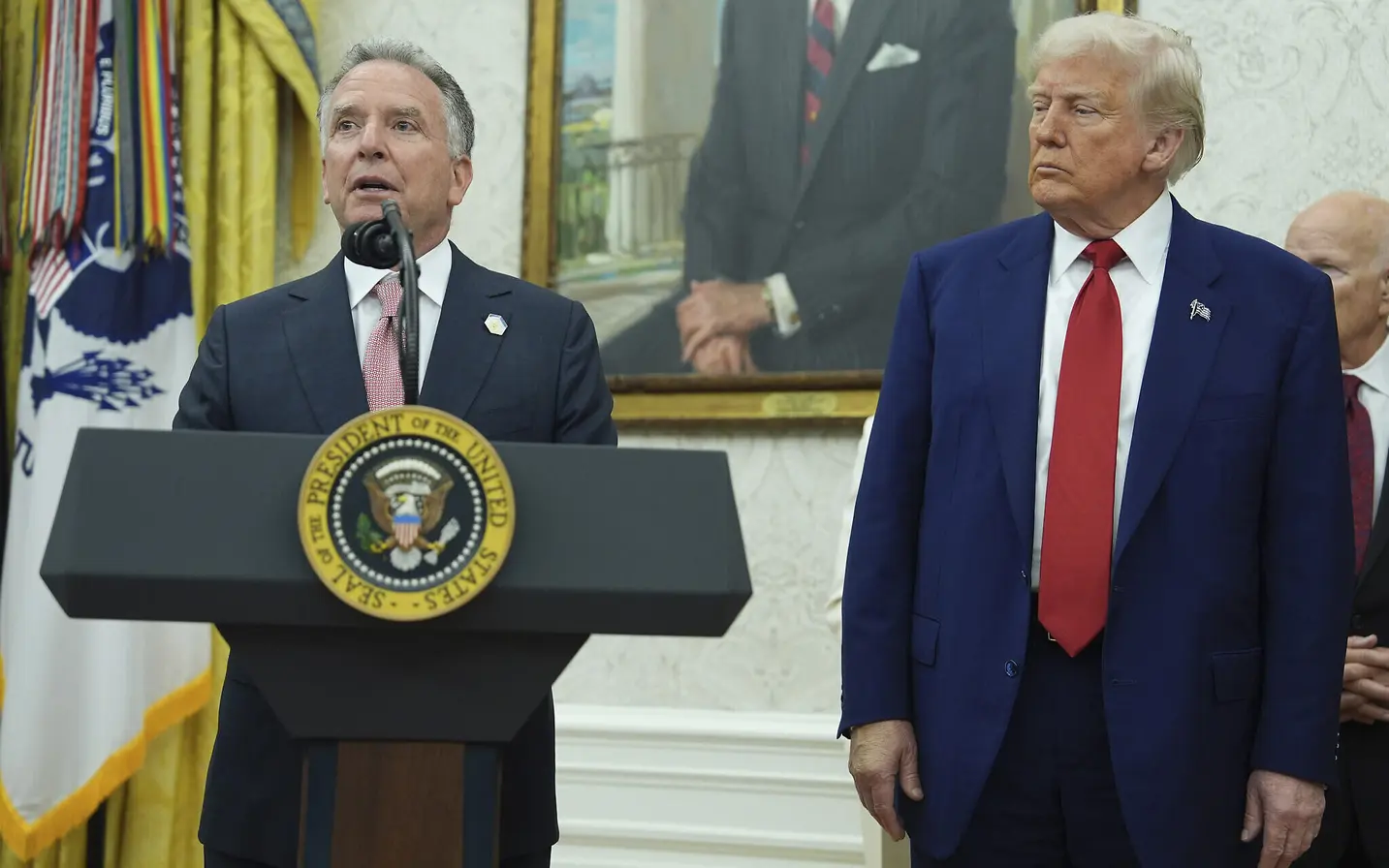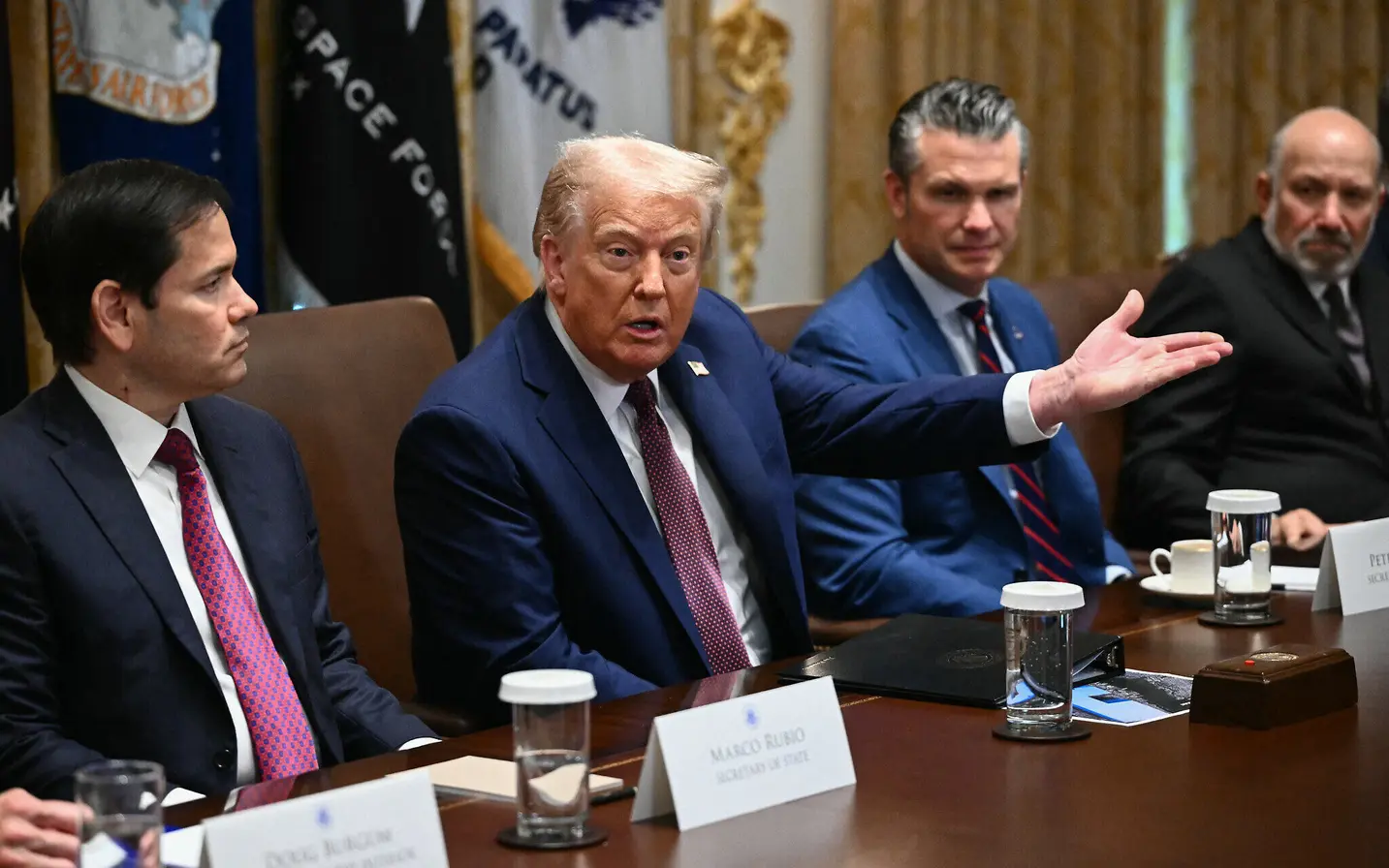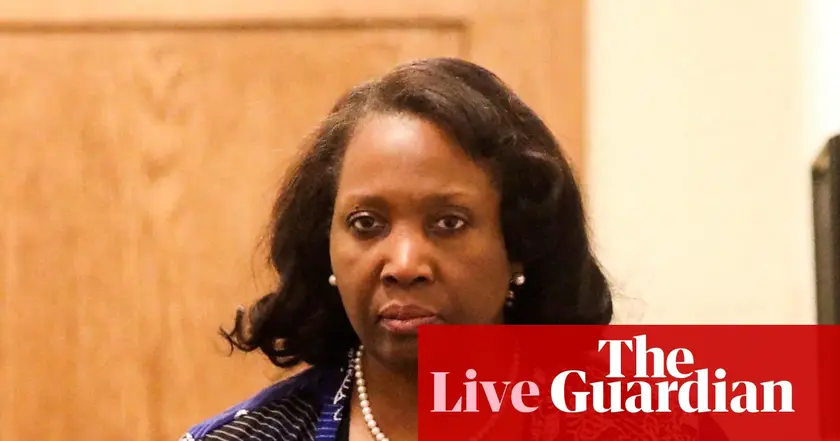T4K3.news
Trump to chair White House meeting on Gaza postwar plan
Trump will oversee a large White House briefing on a comprehensive Gaza postwar framework as hostage negotiations and humanitarian aid remain in flux.

Trump will chair a large White House meeting to discuss a comprehensive postwar Gaza plan as hostage issues and regional diplomacy shape the agenda.
Trump Sets White House Meeting on Gaza Postwar Plan
US President Donald Trump will chair a large White House meeting on Wednesday to discuss a comprehensive plan for Gaza after the war, according to his envoy Steve Witkoff. The gathering signals a push to define the “day after” and to test how a broader framework could shape both humanitarian aid and security realities in Gaza. Witkoff says the plan reflects the president’s humanitarian motives, but he offered few hard details about funding or implementation while acknowledging sensitivity around hostage negotiations.
The discussions come as Hamas has accepted a phased hostage release proposal from Arab mediators, but major gaps remain. Israel has insisted on a war-ending settlement that defeats Hamas and cautions against steps that could leave Hamas in power. Washington has signaled opposition to new partial hostage deals and is weighing how to balance security goals with humanitarian needs, including a recent push to expand aid distribution sites despite questions about funding and oversight. The negotiation landscape remains crowded with regional players pressing for rapid progress even as the Gaza conflict shows signs of protracted strain.
Key Takeaways
"We're going to settle this one way or another, certainly before the end of this year."
Witkoff signaling a year-end timeline for a deal.
"Hamas understands that they can have nothing to do with the government going forward."
Assertion about Hamas' future role.
"There would be a commensurate amount of Palestinian prisoners who would be sent home too."
Comment on potential prisoner exchanges.
"You don't need to keep those hostages."
Stance on hostage releases.
The scene at the White House shows a broad bid to fold multiple crises into a single diplomatic effort. Washington aims to synchronize talks on Gaza with Russia-Ukraine tension and Iran diplomacy, hoping a year-end convergence could deliver a lasting settlement. The risk is that ambition outpaces material support, creating a fragile plan that relies on funding, trust, and a sequence of hostage releases that may not align with battlefield realities.
The policy wager also tests political realities at home and in the region. If the plan hinges on restoring some form of Palestinian governance while disarming Hamas, it faces resistance from hardliners and cautious Arab partners alike. The coming weeks will reveal whether diplomatic rhetoric can translate into measurable aid, safer corridors, and a credible path away from open conflict.
Highlights
- We're going to settle this one way or another, certainly before the end of this year.
- Hamas understands that they can have nothing to do with the government going forward.
- There would be a commensurate amount of Palestinian prisoners who would be sent home too.
- You don't need to keep those hostages.
Political sensitivity and regional backlash risk in Gaza postwar plan
The plan touches on hostage negotiations, aid funding, and the future governance of Gaza, all of which carry high political risk at home and across the region. A lack of transparency or delays in funding could spark backlash from lawmakers, humanitarian groups, and allied governments. The initiative will be closely watched for its impact on civilians and regional stability.
Diplomacy can bend, but it cannot erase the realities on the ground.
Enjoyed this? Let your friends know!
Related News

White House to hold large Gaza meeting

US outlines postwar Gaza framework

Gaza policy session with Blair and Kushner

Blair joins White House Gaza talks

White House plans Gaza strategy meeting

Blair Gaza postwar plan under scrutiny

Post-war Gaza talks gather high-level attention
